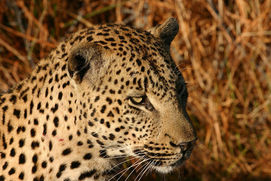 photo: Luca Galuzzi www.galuzzi.it
photo: Luca Galuzzi www.galuzzi.it Our What's On section has been updated for September and beyond, with some brilliant arts events inspired by nature, as always. Please get in contact to add events to the list.
 photo: Luca Galuzzi www.galuzzi.it photo: Luca Galuzzi www.galuzzi.it Autumn tones are starting to appear as NATURAL LIGHT returns from its summer break. Coming up in September: Africa's big cats inspire a composer and a brilliant young musician; the space-rock song-writer on a mission to Earth; celebrating rivers from east London to the Okavango (promised last month when I forgot I was going on holiday!); more big cats in a new poetry collection. And Tweet of the Day goes global! Our What's On section has been updated for September and beyond, with some brilliant arts events inspired by nature, as always. Please get in contact to add events to the list.
0 Comments
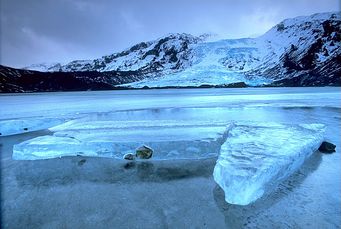 photo: Andreas Tille photo: Andreas Tille On 19 August an earthquake swarm began in the vicinity of the Bárðarbunga volcano, with over 1600 earthquakes recorded in 48 hours. Yesterday Iceland issued a red alert to the aviation industry, and confirmed that a small sub-glacial eruption is under way. On Wednesday, authorities evacuated an area close to the volcano over fears it could erupt. In the world’s youngest – geologically speaking – country, such dramatic-sounding news is not that unusual. Geysers, magma, glaciers and the flooding, often catastrophic, that occurs when so much ice and fire combine, are at the heart of Icelandic culture. So it has been timely that our airwaves experienced a minor eruption of Icelandic music last week. There is still time to catch Donald Macleod’s four-part series on Icelandic composers on iPlayer (though last Monday’s programme expires this Monday), while the Iceland Symphony Orchestra’s Proms performance is available for another four weeks. As part of the Proms Plus literature festival, expert in Nordic sagas Eleanor Rosamond Barraclough joined novelist Joanna Kavenna to discuss Icelandic culture in a conversation that ranged from trolls and the myth of Thule to Nordic Noir, from the 19th century British visitors who included William Morris and Anthony Trollope to modern poets Glyn Maxwell and Simon Armitage. NATURAL LIGHT reviews the whole package in our Reviews section, which contains links to additional material exploring the inextricable link between Iceland’s dramatic natural environment and its music. 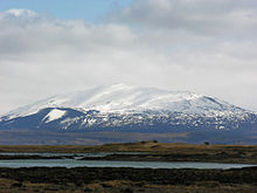 Hekla, Iceland Hekla, Iceland Monumental soundscapes – the volcanoes and geysers of Iceland - are brought to London this week by Ilan Volkov and the Iceland Symphony Orchestra. On Friday Geysir by Jón Leifs (1899-1968) will erupt into the Albert Hall, following Haukur Tómasson’s Magma which receives it UK premiere. Leifs studied and worked in central Europe but on returning to Iceland in the 1940s he set about creating a new Icelandic sound – based, inevitably, on the unique folk music and tectonic geology of his country. He started to concentrate on orchestral works, the better to portray the monumental landscapes and forces of nature that were to be his main subjects. Geysir, from 1962, epitomises this style. Other works include Hekla which depicts the eruption of the volcano (pictured) which he witnessed in 1947, and Dettifoss was inspired by Europe’s most powerful waterfall. Volkov brings Geysir together with Tómasson’s (b.1960) Magma and two other works that are tectonic in scale: Beethoven’s 5th Symphony and Schumann’s A minor piano concerto, in what seems to be an inspired piece of programming, unlike the awkward juxtaposing of contemporary and familiar works that we often expect from the Proms. Hence the title of Thursday’s Prom: Classical Tectonics. I’m not familiar with Tómasson but the Iceland Musical Exchange says that “Tomasson has a keen ear for sonority and can evoke the gargantuan in music just as easily as he can the ice-delicate”. If that’s a fair description, he will be a perfect successor to Leifs. This morning on Radio 3 CD Review includes (about 30 minutes into the programme) a portrait of Leifs. The programme is available for the next 7 days, and the Proms composer portraits are also available as podcasts. The Prom is broadcast live at 7.30 on Friday, and can be heard for 30 days on iPlayer. And all next week, Composer of the Week will be a repeat of the series first broadcast last year, which covers some of Europe's most innovative voices, from Bjork to, well, Leifs. As the programme website puts it: For more than a millennium, Iceland's composers have drawn upon the sounds of its unique geology: sounds created in a glacial, geothermal landscape like nowhere else on earth. Searing water explodes from fissures; the earth steams spongily underfoot; vast, electric-blue hunks of solid ice crack and collide as they bob down otherwise silent fjords.
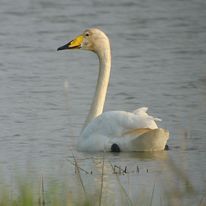 Pascale Aleixandre, Wikimedia Pascale Aleixandre, Wikimedia The third in our feature series Nature at the Proms is on Sibelius, his love of nature, and the swans that inspired his most popular symphony. Symphony no. 5 and The Swan of Tuonela are at the Proms tomorrow night. During the interval two academics, Daniel Grimley and Simon Shaw-Miller talk to Martin Handley about Sibelius the nature-lover. 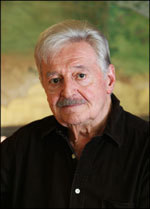 Following the death of Peter Sculthorpe on Friday, our Music page now has a fuller appreciation of his life and work, and some reflections from people who knew him. 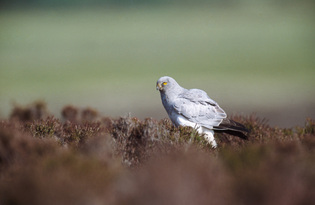 Andy Hay (rspb-mages.com) Andy Hay (rspb-mages.com) Today is Hen Harrier Day. Much is made of the so-called glorious twelfth, the start of the grouse-shooting season. People can make their own minds up about the self-evident fact that if you want to eat grouse, grouse have to die. But this year Hen Harrier Day, two days before the start of the grouse season, has been convened to celebrate and mourn the beautiful hen harrier, the legally protected bird of prey that also has to die to bring grouse to your table, and as a result is almost extinct in England. Hen harrier day is marked by four major events and one minor one. At 10 am there will be a thunderclap (I added my tweet but don’t ask me to explain how it works) and throughout the day people will be gathering at three beautiful locations: South Tyne Trail at Lambley near Haltwhistle to create and assemble a ‘selfie trail’, the Upper Derwent Valley, Derbyshire, but this is now fully subscribed, and the Forest of Bowland, Dunsop Bridge, Lancashire. More details here. The minor event is me posting the score to Skydancer off to the London Contemporary Chamber Orchestra who give its premiere in October (see What’s On). It’s a short piece that tries to capture the bleak landscape of our heather moorlands and the bouncing, dancing flight of a pair of skydancers – the other name for hen harriers. That’s also the name of an RSPB project to raise awareness of their plight and highlight the public support this species enjoys, even in grouse-shooting hotspots where a tiny minority threatens the future of this symbol of the British uplands. Up Here
Hen Harrier Day sees us launch an occasional series of features and blogs linking uplands, rivers, and sea, that will run through August, September and October.
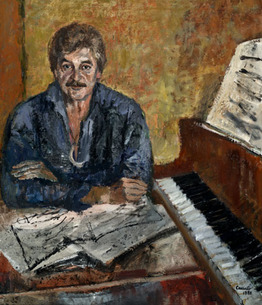
Peter Sculthorpe was Australia's foremost composer, and the first to create a truly Australian musical voice. It was on his return from studying in Oxford that Sculthorpe decided that his western musical heritage needed to make room for other influences, and these included aboriginal meoldies, the sounds of nature, and influences from neighbouring Asian countries.
Pieces such as the 1960s series Irkanda - “scrub country’ and Kakadu (1988) established him as the country’s leading painter of landscapes in sound. The vastness and silence of the outback, or the thronging of Australia’s wetlands, became his primary influences. He, in turn, became an environmental activist, contrasting the aboriginal peoples’ sense of being part of nature with the negative impact wrought by the arrival of Europeans. He worked closely with aboriginal musicians, most notably didjeridu virtuoso William Barton, for whom he wrote Earth Cry, a piece that exploits traditional imitative music to invoke the sounds of wildlife such as magpie geese. 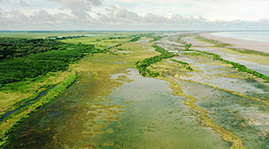
Kakadu, named after the famous National Park in the Northern Territory, is a typical example of his response to landscape and his use of native music. “This enormous wilderness area stretches from coastal tidal plains to rugged mountain plateaux, and in it may be found the living culture of its Aboriginal inhabitants, dating back for fifty thousand years. Sadly, today there are only a few remaining speakers of kakadu or gagadju. The work, then, is concerned with my feelings about this place, its landscape, its change of seasons, its dry season and its wet, its cycle of life and death.”
One celebrated as a pioneer ecological poet, feted as a fallen hero and one of the many artists whose voices survived though their bodies perished. Another unknown in English-speaking lands and one of a handful of German war poets to be recognised as such. Edward Thomas and Gerrit Engelke had poetry in common, and shared a country of last repose: France. In 1914 Engelke was gaining recognition as a poet of industrial Germany, with works that celebrated labour and the working man, cities and factories. His poem At the Seashore seems uncharacteristic in its subject matter. There is a machine-like rhythm to its lines and its rhymes, but it is perhaps a rare reflection on the vastness of nature and the wider world. It is ambiguous as to whom it is addressed – to the sea itself, or to the author himself, or both. Here we present the original and a new translation. In 1908 Edward Thomas wrote “Man seems to me to be a very little part of Nature and the part I enjoy least. But civilisation has estranged us superficially from Nature, and towns make it possible for a man to live as if a millionaire could really produce all the necessities of life - food, drink, clothes, vehicles etc and then a tombstone." It was to be another six years before he took up poetry – at the start of the war and a few weeks before enlisting. He was to write a lifetime of poetry in the two and a half years before he was killed, and in writing works that had nature, rather than humanity, at its heart, became for later generations a pioneer ecopoet and a voice that will resonate for many today. The Combe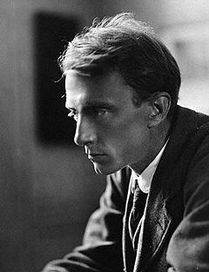 The Combe was ever dark, ancient and dark. Its mouth is stopped with bramble, thorn, and briar; And no one scrambles over the sliding chalk By beech and yew and perishing juniper Down the half precipices of its sides, with roots And rabbit holes for steps. The sun of Winter, The moon of Summer, and all the singing birds Except the missel-thrush that loves juniper, Are quite shut out. But far more ancient and dark The Combe looks since they killed the badger there, Dug him out and gave him to the hounds, That most ancient Briton of English beasts. Edward Thomas b. London, 3 March 1878 d. Arras, France, 9 April 1917 At the Seashore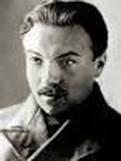 And wave comes and wave flees, And the wind rushes his melodies, Foam water plays around your toes - Kneel down, wanderer, repose! The sea washes o’er the sun on high, And heaven’s flowers light the sky. Which wave do you want to ride? It will not always be a midday tide. Roars a sea unto eternity, Into silence, splendid, and mighty, And no one knows how far you flow- And if you reach your rest, or no Life-long wanderer, you. Gerrit Engelke b. 21 October 1890, Hanover, Germany d. Cambrai, France 13 October 1918 Am Meerufer
Und Welle kommt und Welle flieht, Und der Wind stürzt sein Lied, Schaumwasser spielt an deine Schuhe – Knie nieder, Wandrer, ruhe! Es wälzt das Meer zur Sonne hin, Und aller Himmel blüht darin. Mit welcher Welle willst du treiben? Es wird nicht immer Mittag bleiben. Es braust ein Meer zur Ewigkeit, In Glanz und Macht und Schweigezeit, Und niemand weiß wie weit – Und einmal kommst du dort zur Ruh, Lebenswandrer, Du. 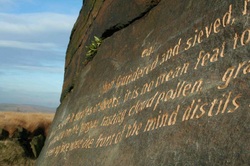 Stanza Stones, South Pennines Stanza Stones, South Pennines Next weekend, NATURAL LIGHT celebrates the Uplands of Britain and their most emblematic bird, the hen harrier. New poems, moorland art and music all feature on a day that will start with a bang - in fact, a Thunderclap in support of this stunning but much persecuted bird. Our Nature at the Proms series continues with celebrations of Gavin Maxwell, swans in Finland and cuckoos in Austria. Later in the month we begin an occasional series featuring rivers, that will continue into the autumn. Our What's On section lists some brilliant events this month, from the Isle of Canna to Hastings. Use the contact form if you have nature-inspired arts events to add. In the meantime, please show your support for the hen harrier by joining the thunderclap! Thanks! |
WelcomeFollow us on
Facebook and Twitter Email us Archives
October 2018
Categories
All
|